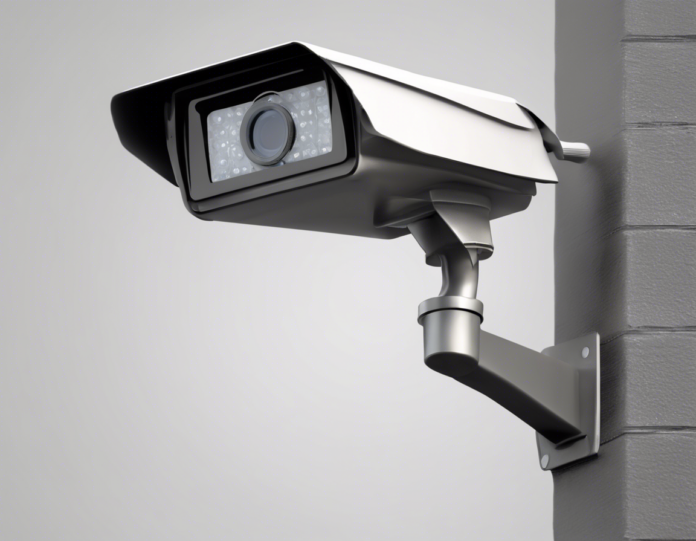Introduction
In the age of technology and surveillance, the term CCTV is one that most people have encountered. CCTV, standing for Closed-Circuit Television, refers to a system of video cameras that transmit signals to a specific and limited set of monitors. These systems are used for a variety of purposes, including security, monitoring, and surveillance. In this article, we will delve into the world of CCTV systems, exploring their history, applications, benefits, and frequently asked questions.
History of CCTV
The concept of Closed-Circuit Television dates back to the late 1940s when the first video surveillance system was installed by Siemens AG at a test stand for V-2 rockets in Peenemünde, Germany. Over the years, the technology evolved, with commercial CCTV systems becoming more widely available in the 1970s. Today, CCTV systems are ubiquitous in public spaces, businesses, homes, and government facilities around the world.
Components of a CCTV System
A typical CCTV system consists of several key components:
1. Cameras: These are the devices that capture video footage. CCTV cameras come in various types, including dome, bullet, and PTZ (Pan-Tilt-Zoom) cameras.
2. Monitors: The monitors display the live or recorded video feed from the cameras. They allow operators to monitor the premises in real-time.
3. Recording Devices: DVRs (Digital Video Recorders) or NVRs (Network Video Recorders) are used to store the video footage captured by the cameras. This footage can be reviewed later for security purposes.
4. Cables and Connectors: These components are essential for transmitting video signals from the cameras to the monitors and recording devices.
Applications of CCTV Systems
CCTV systems have a wide range of applications in various settings:
1. Security: CCTV cameras are commonly used for security purposes, such as monitoring entrances and exits, deterring criminal activity, and providing evidence in the event of a crime.
2. Traffic Monitoring: CCTV cameras are used to monitor traffic flow, detect traffic violations, and manage road congestion in urban areas.
3. Retail: Retail stores use CCTV systems to prevent theft, monitor customer behavior, and improve overall store security.
4. Home Security: CCTV systems are increasingly popular for home security, allowing homeowners to monitor their property remotely and receive alerts in case of suspicious activity.
Benefits of CCTV Systems
1. Crime Deterrent: The presence of CCTV cameras can deter criminals from engaging in illegal activities, thus enhancing security in public spaces and private properties.
2. Evidence Collection: In the event of a crime, CCTV footage can serve as crucial evidence for law enforcement agencies, helping in investigations and prosecution.
3. Remote Monitoring: With advancements in technology, CCTV systems now allow users to monitor their premises remotely via smartphones or computers, providing peace of mind and convenience.
4. Employee Productivity: In a business setting, CCTV cameras can help monitor employee behavior, thus improving productivity and ensuring adherence to company policies.
5. Insurance Benefits: Many insurance companies offer discounts to properties that have CCTV systems installed, as they are seen as a proactive measure in reducing the risk of theft and vandalism.
FAQs (Frequently Asked Questions)
Q1: What is the difference between CCTV and surveillance cameras?
A1: CCTV stands for Closed-Circuit Television and refers to a system of video cameras linked to a monitor. Surveillance cameras, on the other hand, encompass a broader range of cameras used for monitoring and recording activities in a specific area.
Q2: Are CCTV cameras secure from hacking?
A2: While CCTV systems can be vulnerable to hacking if not properly secured, choosing reputable brands, regularly updating firmware, and using strong passwords can help enhance security.
Q3: Can CCTV footage be used in court as evidence?
A3: Yes, CCTV footage is admissible in court as evidence, provided it meets certain criteria, such as clarity, authenticity, and relevance to the case.
Q4: How long is CCTV footage stored for?
A4: The storage duration of CCTV footage varies depending on the type of system and settings. It can range from a few days to several months, with some systems offering cloud storage options for longer retention periods.
Q5: Do CCTV cameras record sound?
A5: In many jurisdictions, recording audio without consent is illegal, so most CCTV systems do not record sound by default. However, some models come equipped with audio recording capabilities for specific purposes.
Conclusion
In conclusion, CCTV systems play a crucial role in enhancing security, monitoring activities, and providing evidence in various settings. From homes and businesses to public spaces and government facilities, the presence of CCTV cameras has become a common sight in today’s world. By understanding the history, components, applications, and benefits of CCTV systems, individuals and organizations can make informed decisions regarding their security needs and requirements.












